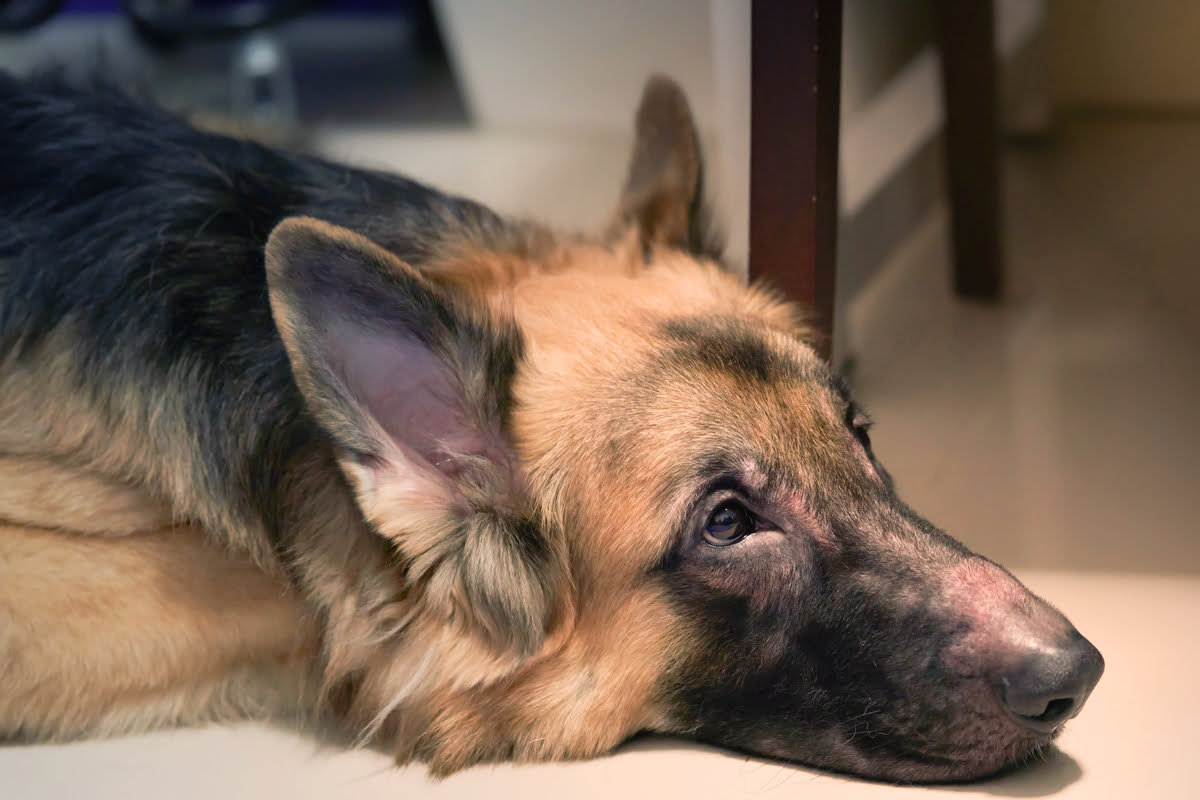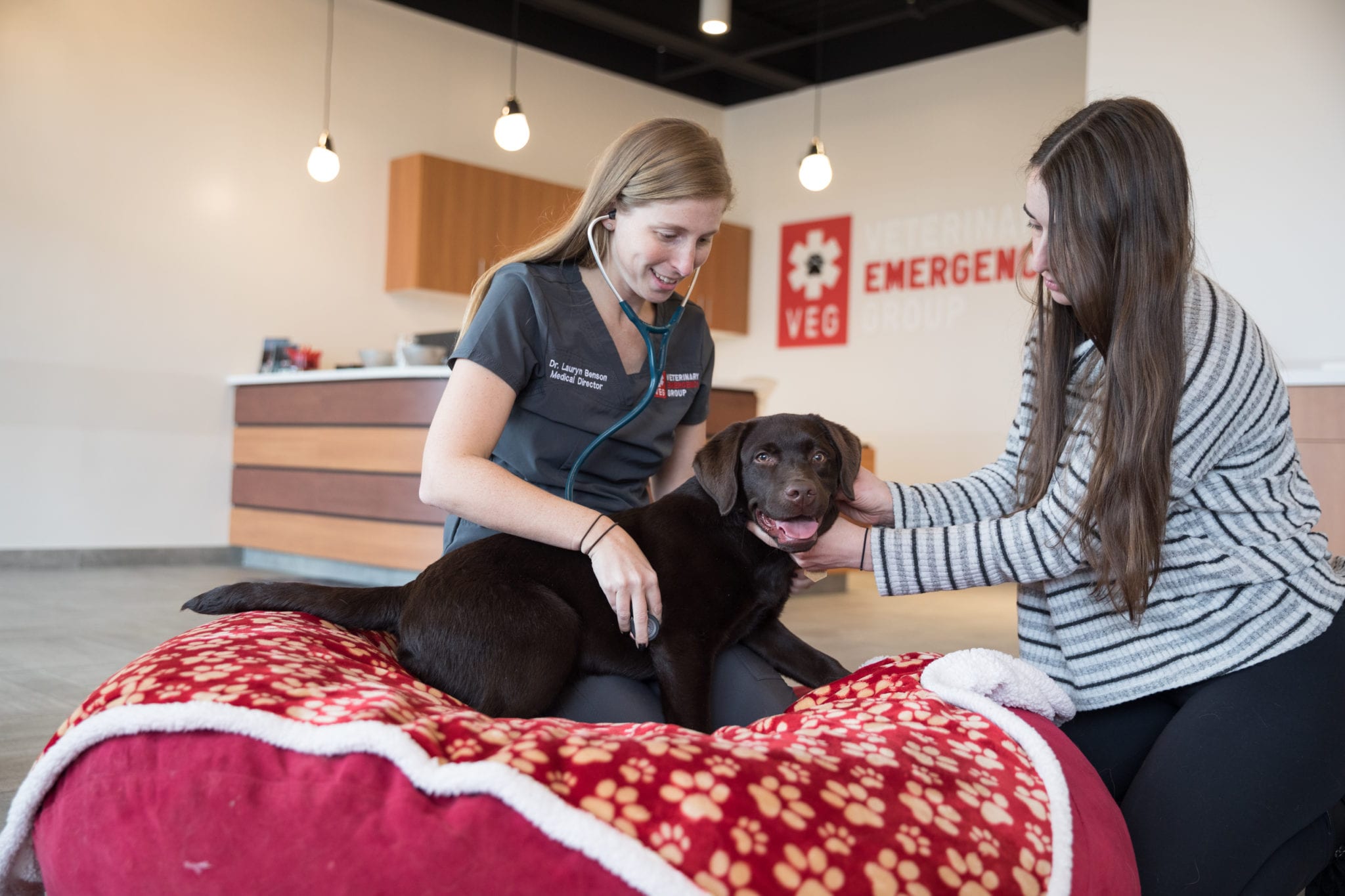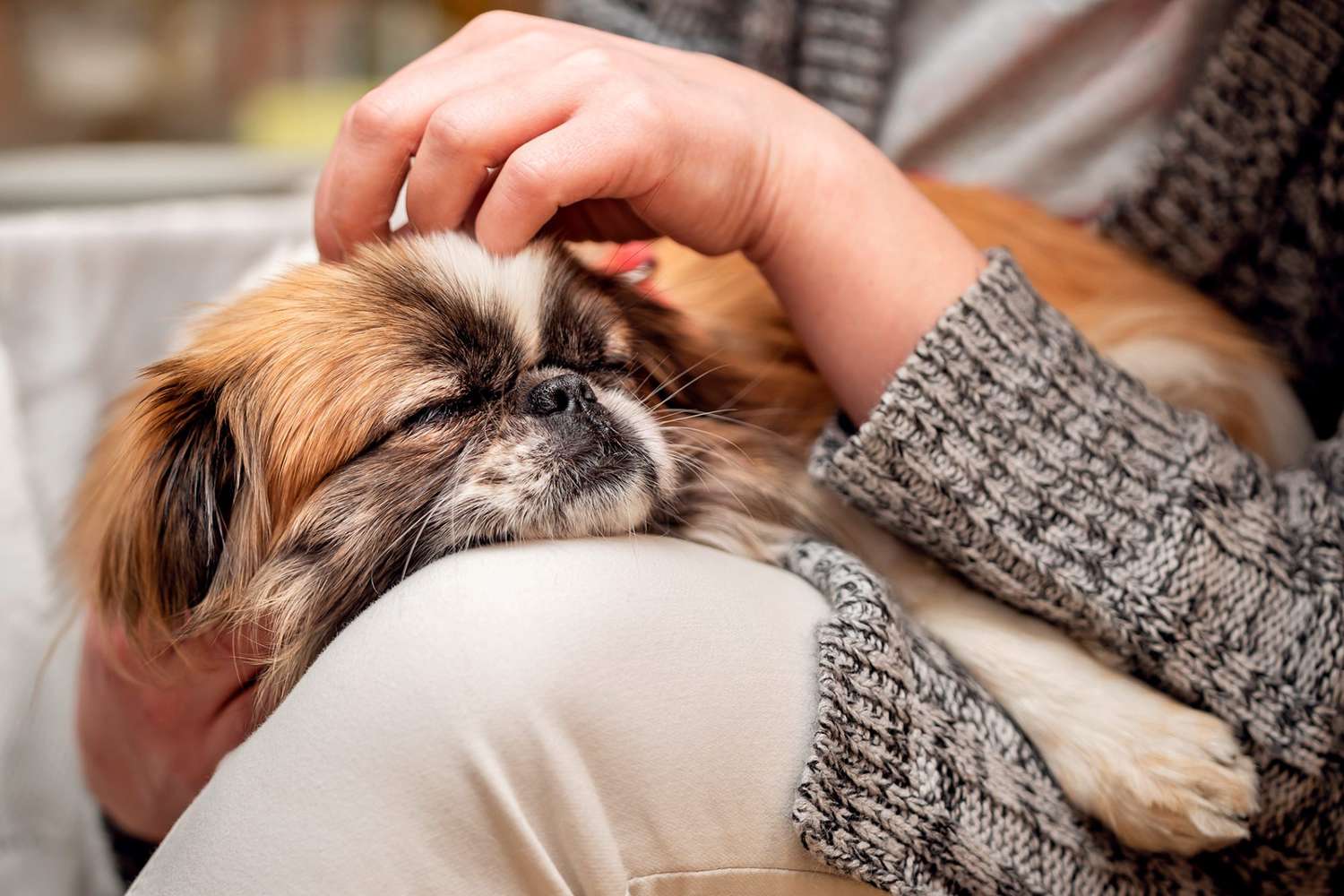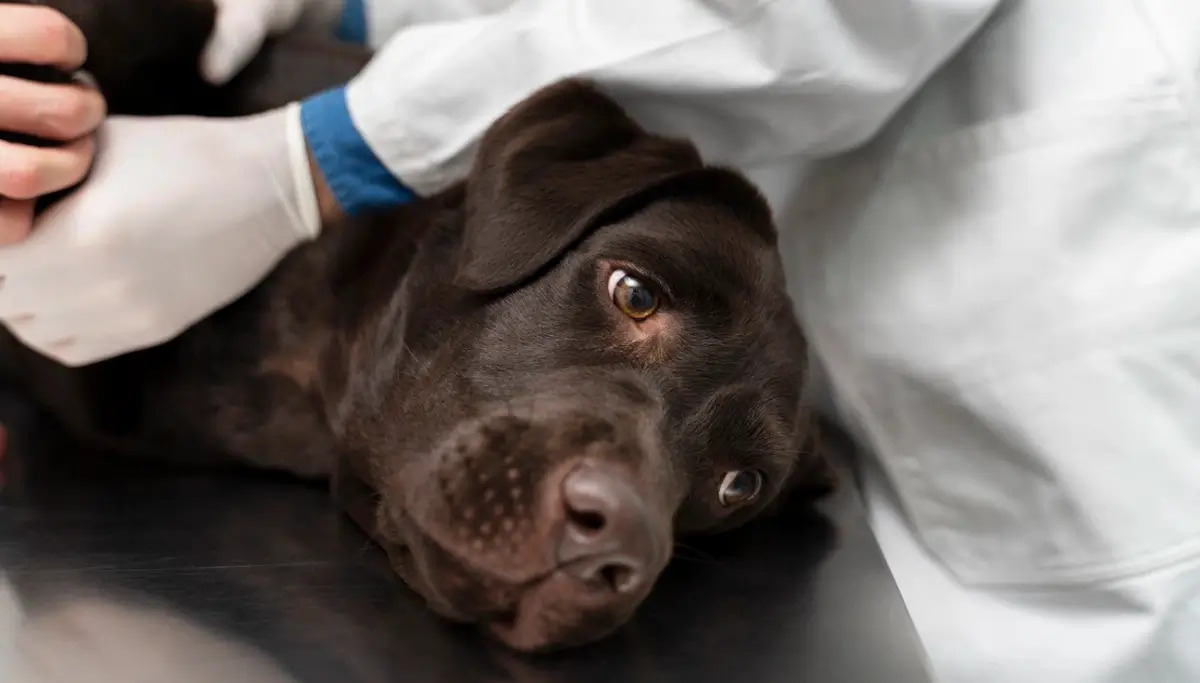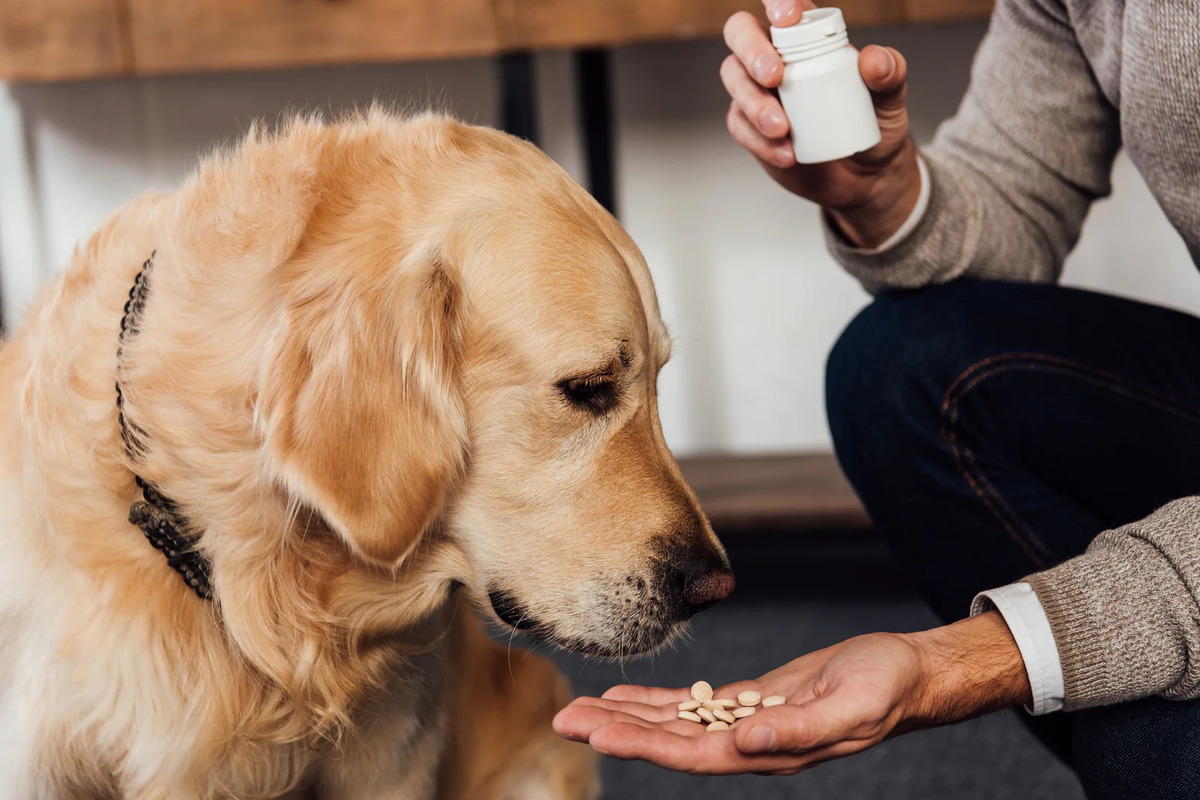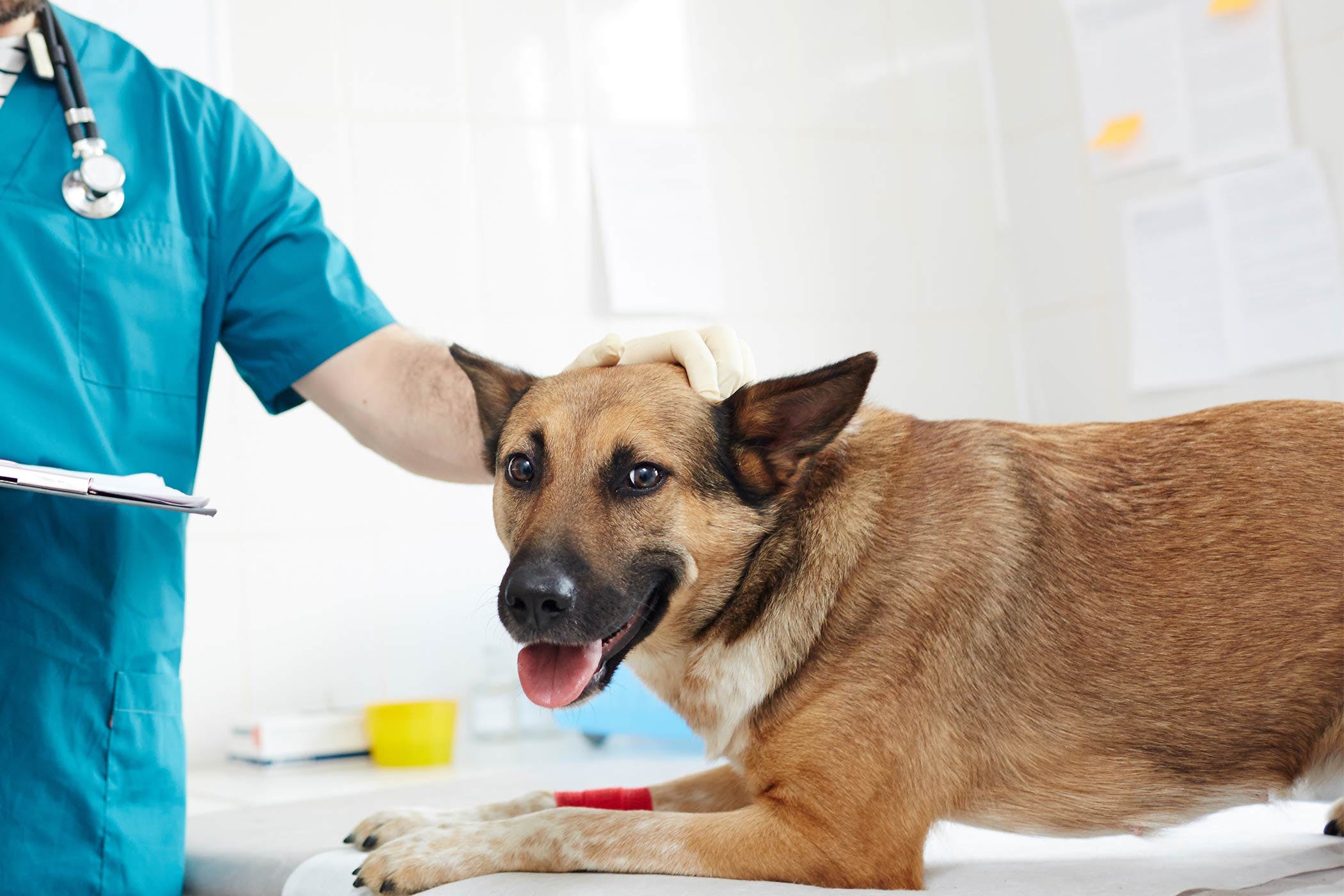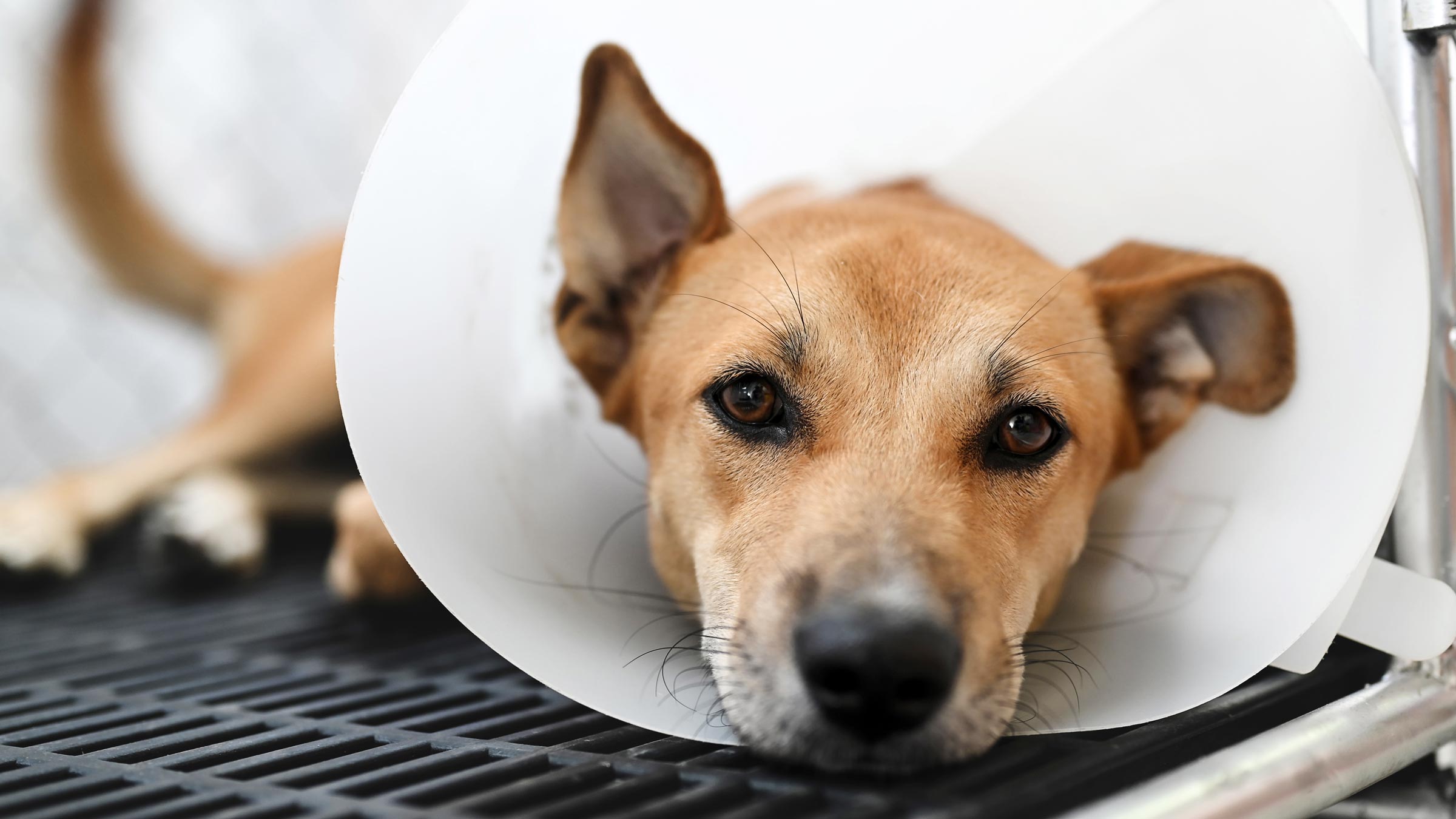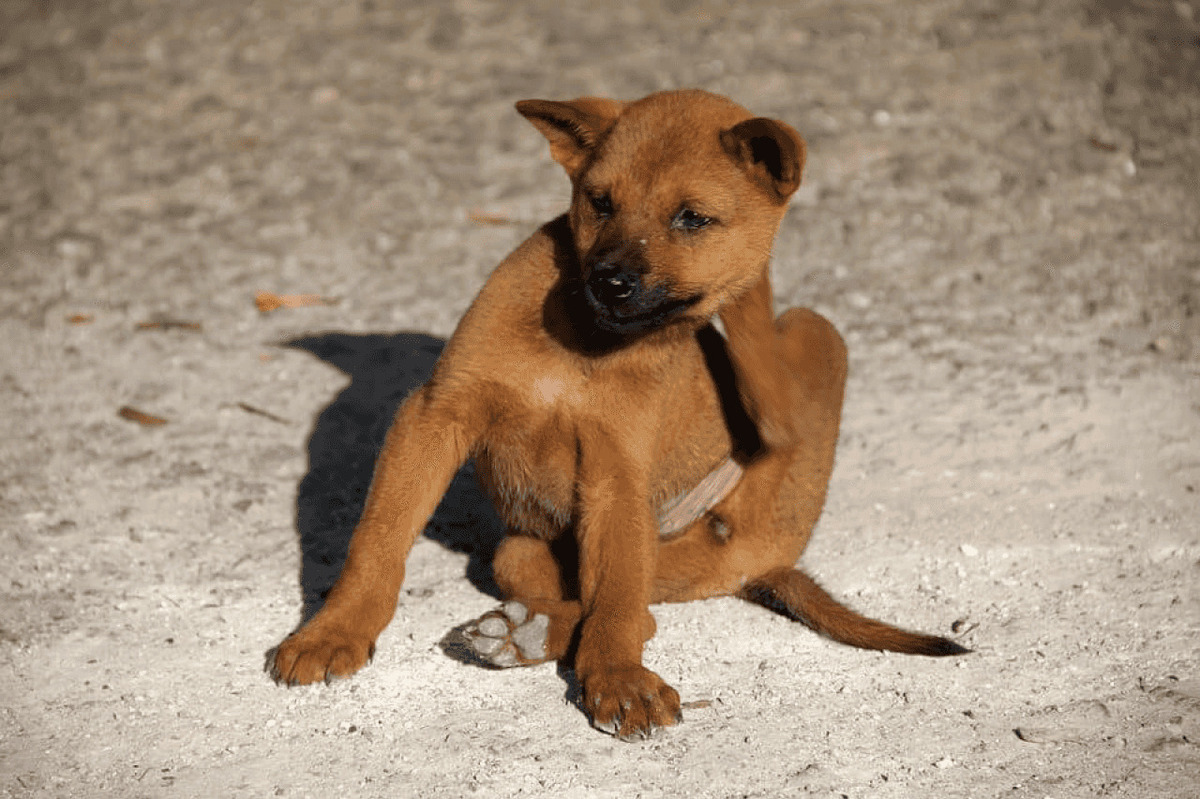Home>Health & Wellness>Common Health Issues>What To Do When Your Dog Has An Allergic Reaction To A Vaccine


Common Health Issues
What To Do When Your Dog Has An Allergic Reaction To A Vaccine
Published: January 26, 2024
Learn how to recognize and manage allergic reactions in dogs after vaccination. Discover tips for dealing with common health issues.
(Many of the links in this article redirect to a specific reviewed product. Your purchase of these products through affiliate links helps to generate commission for Pawsomeoldies.com, at no extra cost. Learn more)
Table of Contents
Understanding Allergic Reactions to Vaccines in Dogs
Vaccinating your dog is a crucial aspect of responsible pet ownership, as it helps protect them from various infectious diseases. However, just like humans, dogs can experience allergic reactions to vaccines. An allergic reaction occurs when the immune system overreacts to a substance, in this case, a component of the vaccine. It's important for dog owners to understand the nature of allergic reactions to vaccines in order to recognize and address them promptly.
Vaccines work by stimulating the immune system to produce a response against specific pathogens. In some cases, a dog's immune system may react adversely to a vaccine, leading to an allergic response. The components of a vaccine that can trigger an allergic reaction in dogs typically include proteins, preservatives, and stabilizers. These components are necessary for the vaccine's effectiveness and shelf life but can also potentially provoke an allergic response in sensitive individuals.
Allergic reactions to vaccines in dogs can manifest in various ways, ranging from mild to severe. Common signs of an allergic reaction include swelling at the injection site, hives, itching, facial swelling, vomiting, diarrhea, difficulty breathing, and in severe cases, collapse or anaphylactic shock. It's important to note that allergic reactions can occur immediately after vaccination or be delayed, appearing hours or even days later.
Understanding the potential for allergic reactions to vaccines in dogs underscores the importance of monitoring your pet closely after vaccination. By being aware of the signs and symptoms of an allergic reaction, dog owners can take proactive measures to ensure their pet's well-being. Additionally, being informed about the possibility of allergic reactions can help pet owners engage in informed discussions with their veterinarians regarding their dog's vaccination schedule and any potential risks involved.
In summary, allergic reactions to vaccines in dogs can occur due to the immune system's overreaction to specific components of the vaccine. Recognizing the signs and symptoms of allergic reactions is crucial for prompt intervention and ensuring the health and safety of our beloved canine companions.
Signs and Symptoms of an Allergic Reaction
Allergic reactions to vaccines in dogs can manifest in various ways, and recognizing these signs and symptoms is crucial for prompt intervention. It's important to note that the onset of symptoms can vary, with some reactions occurring immediately after vaccination, while others may be delayed, appearing hours or even days later.
-
Swelling at the Injection Site: One of the most common signs of an allergic reaction is swelling at the injection site. This localized swelling may be accompanied by redness and tenderness. It's essential to monitor the injection site after vaccination and seek veterinary attention if abnormal swelling persists or worsens.
-
Hives and Itching: Dogs experiencing an allergic reaction may develop hives, which are raised, red welts on the skin. Additionally, they may exhibit intense itching or scratching, indicating discomfort and a potential allergic response to the vaccine.
-
Facial Swelling: Allergic reactions can lead to facial swelling in dogs, particularly around the eyes, muzzle, or ears. This swelling may be accompanied by itchiness and can progress rapidly, requiring immediate veterinary attention.
-
Gastrointestinal Distress: Some dogs may experience gastrointestinal symptoms such as vomiting and diarrhea as part of an allergic reaction to a vaccine. These symptoms can indicate an adverse immune response and should not be overlooked.
-
Respiratory Distress: Allergic reactions can also affect a dog's respiratory system, leading to symptoms such as coughing, wheezing, or difficulty breathing. In severe cases, respiratory distress can escalate rapidly, necessitating immediate veterinary care.
-
Anaphylactic Shock: In rare but severe cases, dogs may experience anaphylactic shock, a life-threatening allergic reaction that requires immediate medical intervention. Symptoms of anaphylaxis include weakness, collapse, pale gums, rapid heart rate, and difficulty breathing.
It's important for dog owners to be vigilant for these signs and symptoms following vaccination. While some reactions may be mild and self-limiting, others can escalate rapidly, posing a serious risk to the dog's health. Prompt recognition of allergic reaction symptoms enables timely intervention, potentially preventing the progression to severe complications.
In summary, being attentive to signs such as swelling at the injection site, hives, facial swelling, gastrointestinal distress, respiratory symptoms, and anaphylactic shock is essential for identifying and addressing allergic reactions to vaccines in dogs. This awareness empowers dog owners to take proactive measures to safeguard their pet's well-being and seek veterinary care when necessary.
What to Do if Your Dog Shows Signs of an Allergic Reaction
Upon observing signs of an allergic reaction in your dog following vaccination, it is crucial to take immediate and decisive action to address the situation. The following steps can help mitigate the allergic response and ensure the well-being of your canine companion:
-
Stay Calm: As a pet owner, it's natural to feel alarmed upon witnessing your dog's allergic reaction. However, it's essential to remain calm and composed, as your dog can pick up on your emotions. By staying calm, you can better assess the situation and take appropriate measures to help your pet.
-
Isolate the Dog: If your dog displays symptoms of an allergic reaction, such as facial swelling, hives, or respiratory distress, it's advisable to isolate them in a quiet, comfortable space. Minimizing external stimuli can help reduce stress and prevent potential injuries resulting from restlessness or discomfort.
-
Contact Your Veterinarian: Promptly reach out to your veterinarian to report the observed symptoms and seek their guidance. Describe the specific signs of the allergic reaction and follow their instructions regarding the next steps. Your veterinarian may recommend bringing your dog in for immediate evaluation or provide initial care instructions over the phone.
-
Monitor Vital Signs: While awaiting veterinary guidance, monitor your dog's vital signs, including their breathing rate, heart rate, and overall demeanor. Note any changes in behavior or additional symptoms that may develop. This information can be valuable for your veterinarian in assessing the severity of the allergic reaction.
-
Administer Medications (if advised): If your veterinarian recommends administering any medications, such as antihistamines or prescribed emergency treatments, ensure that you follow their instructions carefully. It's essential to use medications specifically prescribed or approved by your veterinarian to avoid potential complications.
-
Avoid Further Vaccination: If the allergic reaction is linked to a specific vaccine, refrain from administering the same vaccine to your dog in the future. Your veterinarian can provide alternative vaccination options or devise a modified vaccination schedule to minimize the risk of future allergic reactions.
-
Document the Reaction: Keep a record of the allergic reaction, including the date of vaccination, the specific vaccine administered, and the observed symptoms. This documentation can aid your veterinarian in assessing your dog's medical history and formulating an appropriate vaccination plan moving forward.
By taking these proactive measures, you can effectively respond to your dog's allergic reaction and collaborate with your veterinarian to ensure the best possible care for your pet. Remember that timely intervention and professional guidance are crucial in managing allergic reactions to vaccines in dogs.
Seeking Veterinary Care for Your Dog's Allergic Reaction
Upon observing signs of an allergic reaction in your dog following vaccination, seeking prompt veterinary care is paramount to address the situation effectively. Veterinary intervention is crucial in managing allergic reactions and mitigating potential complications. Here's a detailed overview of the steps involved in seeking veterinary care for your dog's allergic reaction:
Contact Your Veterinarian Immediately
As soon as you notice signs of an allergic reaction in your dog, such as swelling, hives, or respiratory distress, contact your veterinarian without delay. Provide a clear and concise description of the observed symptoms and the timeline of the reaction. Communicating the specific details of your dog's condition enables the veterinarian to assess the urgency of the situation and provide appropriate guidance.
Read more: What To Do When Your Dog Has Fleas
Follow Veterinary Instructions
Upon contacting your veterinarian, follow their instructions diligently. They may recommend bringing your dog in for immediate evaluation or provide initial care instructions over the phone. It's essential to adhere to their guidance regarding the next steps, including preparing your dog for transport to the veterinary clinic if necessary.
Veterinary Evaluation and Treatment
Once at the veterinary clinic, your dog will undergo a thorough evaluation to assess the severity of the allergic reaction. The veterinarian will examine your dog, monitor vital signs, and may perform diagnostic tests to gauge the extent of the reaction. Based on the assessment, the veterinarian will initiate appropriate treatment, which may include administering medications, such as antihistamines or corticosteroids, to alleviate the allergic response.
Monitoring and Supportive Care
During your dog's veterinary care, they will receive close monitoring and supportive care to ensure their stability and comfort. The veterinary team will observe your dog's vital signs, respiratory function, and overall well-being, making adjustments to the treatment plan as necessary. In severe cases of allergic reactions, such as anaphylactic shock, intensive care and emergency interventions may be required to stabilize your dog's condition.
Post-Reaction Assessment and Recommendations
Following the initial treatment, the veterinarian will assess your dog's response to the intervention and provide recommendations for ongoing care. They may advise on potential follow-up treatments, modifications to your dog's vaccination schedule, and strategies to prevent future allergic reactions. Additionally, the veterinarian may discuss alternative vaccine options or allergy testing to identify specific triggers for future vaccinations.
Documentation and Follow-Up
Ensure that you maintain detailed documentation of your dog's allergic reaction, including the veterinary care received, medications administered, and any post-reaction instructions. This information is valuable for your dog's medical records and can guide future vaccination decisions. Additionally, schedule any recommended follow-up appointments to monitor your dog's recovery and discuss long-term preventive measures with your veterinarian.
By promptly seeking veterinary care and collaborating closely with the veterinary team, you can effectively address your dog's allergic reaction and safeguard their well-being. Veterinary expertise and intervention play a pivotal role in managing allergic reactions to vaccines in dogs, ensuring the best possible outcome for your beloved pet.
Preventing Allergic Reactions in the Future
Preventing allergic reactions in dogs following vaccination involves proactive measures aimed at minimizing the risk of adverse immune responses while ensuring the continued protection against infectious diseases. Implementing the following strategies can help mitigate the likelihood of allergic reactions and promote the overall well-being of your canine companion.
Allergy Assessment and Pre-Vaccination Screening
Before administering vaccines to your dog, consider consulting with your veterinarian to assess their allergy history and potential sensitivities. Conducting pre-vaccination screening, which may include allergy testing, can help identify any existing sensitivities or allergic tendencies. This information enables your veterinarian to tailor a vaccination plan that minimizes the risk of triggering allergic reactions while providing essential immunization.
Vaccine Selection and Administration Protocols
Work closely with your veterinarian to select vaccines that are deemed safe and suitable for your dog's individual health profile. Certain vaccines may contain specific components that can potentially provoke allergic responses in sensitive dogs. By opting for vaccines with minimal allergenic potential and adhering to precise administration protocols, such as proper injection techniques and site rotation, you can reduce the likelihood of allergic reactions.
Allergy Management and Desensitization
For dogs with known allergies or a history of allergic reactions, consider exploring allergy management strategies, including desensitization protocols. These approaches involve gradual exposure to allergens under veterinary supervision, aiming to reduce the dog's sensitivity over time. By addressing underlying allergies and sensitivities, you can potentially lower the risk of exaggerated immune responses to vaccine components.
Individualized Vaccination Schedules
Collaborate with your veterinarian to develop individualized vaccination schedules tailored to your dog's specific needs and risk factors. This approach considers factors such as age, lifestyle, geographic location, and underlying health conditions, ensuring that vaccines are administered judiciously and in alignment with your dog's overall well-being. By customizing vaccination schedules, unnecessary exposure to potential allergens can be minimized.
Post-Vaccination Monitoring and Support
Following vaccination, closely monitor your dog for any signs of allergic reactions, particularly during the immediate post-vaccination period. Be attentive to changes in behavior, injection site reactions, or any unusual symptoms that may indicate an adverse response. Promptly report any concerns to your veterinarian, enabling timely intervention if an allergic reaction is suspected.
Ongoing Communication with Your Veterinarian
Maintain open and proactive communication with your veterinarian regarding your dog's vaccination history, any observed reactions, and ongoing health status. By fostering a collaborative relationship with your veterinarian, you can receive personalized guidance, stay informed about potential vaccine-related risks, and make well-informed decisions regarding your dog's vaccination protocol.
By implementing these preventive measures, dog owners can take proactive steps to minimize the risk of allergic reactions to vaccines in their canine companions. Prioritizing individualized care, informed vaccine selection, and vigilant monitoring contributes to safeguarding the health and well-being of dogs while upholding essential immunization practices.

